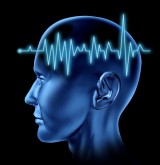Browse Library Database [W]
This is out Library. Please click on the article title to view the details.
Who Should Fund Medical Research?
submitted by: admin on 10/12/2013
The December 12, 2012 issue of the Journal of the American Medical Association published an article by two Johns Hopkins Medical Center staff stating that there is a crisis because medical research is becoming too expensive, big pharma will need to cut back on funding this research, and they anticipate cuts in federal research funding this next year.
While...
Who Should Take Your Blood Pressure?
submitted by: admin on 10/12/2013
The best way to take your blood pressure is yourself at home, not in the doctor's office. White coat hypertension is very common and leads to false elevations that are often treated with medications that are not needed. Automatic blood pressure machines are the best.
Why ADHD and ADD are Becoming a Pandemic
submitted by: admin on 05/24/2016
According to a November 2014 article published in Social Science and Medicine, the diagnosis of ADHD and ADD are spreading like an infectious disease. Until the past decade, the US consumed 90% of the drugs used to treat these disorders, and the UK, Germany, France, Italy, and Brazil the rest. Even though far more of these drugs are now used in the US, we...
Why Aging is a Mistake
submitted by: admin on 10/24/2013
While we all age, we do it at different rates depending on how well we take care of ourselves. Our chronological age (the number of years we have) is often quite different from our biologial age (how well our biology functions). There are examples of people who are over 80 but still function very well and others where someone 10 years old has the physiological...
Why Amalgams, Root Canals, and Cavitations are Dangerous
submitted by: admin on 10/12/2013
One hundred and three years ago Weston Price, DDS and the Mayo Clinic completed studies showing that all root canals are infected and were capable of causing disease. They implanted root canal fragments from people with a recent heart attack into thousands of rabbits and showed that 100% of the rabbits would have a heart attack within a few weeks....
Why Americans are not Filling their Prescriptions or Getting Recommended Tests
submitted by: admin on 10/17/2013
The 2012 Consumer's Report's annual prescription poll shows many Americans cannot afford to pay for the multiple prescriptions, doctor visits, or multitude of lab tests ordered by their physicians. About 45% of US adults take an average of 4.1 drugs and among those between 18 and 39 years of age take an average of 2 prescriptions. A stunning...
Why Antidepressants Don't Work
submitted by: admin on 03/01/2015
SSRI antidepressants, according to research published in the February issue of Neuroscience and Biobehavioral Reviews, may increase serum levels of serotonin, but actually lower levels in the brain. This family of drugs blocks the re-uptake of serotonin by nerve tissue, which raises serum levels but actually lowers levels where we need them the most -- in...
Why are People Fatigued with Richard Kunin, MD
submitted by: admin on 10/17/2013
Fatigue is a problem for almost everyone at some time during their life. Four main causes are malnutrition, pollution, stress, and damage. Genetics could also play a role. Dr. Saputo and Dr. Kunin discuss fatigue at the cellular level and the lack of energy production (the cellular production of ATP) and the miracle of mitochondria.
Why Belly Fat is not All Bad
submitted by: admin on 11/27/2013
When I was in medical school the omentum, that fatty membrane in the abdomen that covers the abdominal cavity and its organs, was believed to be no more than a repository for fat. Today researchers have discovered that it is a organ that regulates immune T cells and is a rich repository of stem cells that are necessary for organ repair and regeneration. It may...
Why Children are Depressed
submitted by: admin on 10/17/2013
10% of kids are depressed and far too many are treated with drug therapies. The causes of this depression are explored and approaches to treatment considered. Kids need healthy role models.
Why Defensive Medicine Won't Go Away
submitted by: admin on 10/17/2013
Defensive medicine leads to ordering too many tests that are often costly and potentially dangerous. It leads to skyrocketing insurance premiums but it tends to protect physicians from malpractice suits. What is needed is a more personal relationship between physicians and patients that includes patients in the decision-making process in assessment...
Why Doctors Over-diagnose and Over-Treat Blood Pressure
submitted by: admin on 01/05/2015
The United States Preventive Task Force reviewed 27 studies in February of 2014 to determine the benefits and harms of screening for high blood pressure and concluded that office blood pressure readings are not accurate about half of the time. This leads to over-diagnosis and over-treatment of blood pressure. For this reason they recommended ambulatory blood...
Why Doctors Should not Just Treat Symptoms
submitted by: admin on 10/27/2014
No one wants to suffer. Most of the time we go to our doctor because we don't feel well and we want something to make us feel better. In general we're not interested for the psychospiritual reasons for illness. However, in the day of the shaman, the concern was just the opposite. We don't ask for the meaning of our symptoms in the context of our whole...
Why Gandhi with Professor Arya Bhardwaj
submitted by: admin on 12/16/2025
Gandhi was the first social revolutionary that brought human values to another higher level. Non-violence is nothing new; the vedic tradition is non-violent. Gandhi in action must be brought forward as our basic premise of our community.
Why it is Important to Spice Up Your Meals
submitted by: admin on 12/18/2014
A study published in November of 2014 in Nutrition Today shows that high antioxidant spices enhance our health and protect against diseases such as heart disease. The researchers found that when eating a high fat diet that by adding high antioxidant spices such as garlic, rosemary, oregano, cinnamon, cloves, turmeric, ginger and black pepper, that levels...
Why it is Time to End Routine Mammograms
submitted by: admin on 06/01/2015
In a commentary by Eric Topol, MD, in May of 2015 in WebMD, he stated that there is more harm than good for screening mammography...and Vicki and I agree! He reported that all evidence from 1960-2014 for 10,000 women screened annually for 10 years, there are only 5 deaths. However, there were more than 6100 false positive tests that led to additional imaging...
Why Mainstream Medicine Resists CAM
submitted by: admin on 12/17/2014
An article published in the December 2014 supplement of Medical Care presented 14 original studies promoting the use of complementary and alternative medicine (CAM) in the military to manage PTSD. They reported that CAM programs are now offered in 90% of VA hospitals today for chronic pain, anxiety, PTSD, and depression. They can do this because they are...
Why Medicine is Not So Evidenced Based with Beverly Rubik
submitted by: admin on 10/17/2013
Today's medicine gives the illusion that it is evidence-based. Self healing through placebo is subtracted from the effect of our treatments. Healing is a multifactorial process that is far more than using drugs, technology, and surgery. There are conflicts of interest, fabrication of data, fraudulent inclusion of popular names on papers that they...
Why Mental Illness is on the Rise
submitted by: admin on 01/25/2023
There is an epidemic of mental illness that has emerged since the onset of Covid19. Dr. Diane Hennesy Powell is an exceptionally well trained and experienced psychiatrist who discusses with Dr. Len factors such as environmental exposures, certain illnesses, certain pharmaceutical drugs, and the way Covid 19 was managed how this has happened. The role of spirit...
Why Milk Can Cause Ulcerative Colitis
submitted by: admin on 10/17/2013
Milk fats can initiate immune dysfunction that can lead to inflammatory bowel disease (IBD). Concentrated milk fat caused mice to develop IBD at three times the rate (60%) that mice fed a low fat diet or a diet with polyunsaturated fats. IBD correlated with the emergence of a bacteria called Bilophila wadsworthia from nearly undetectable levels to about 6% of...



